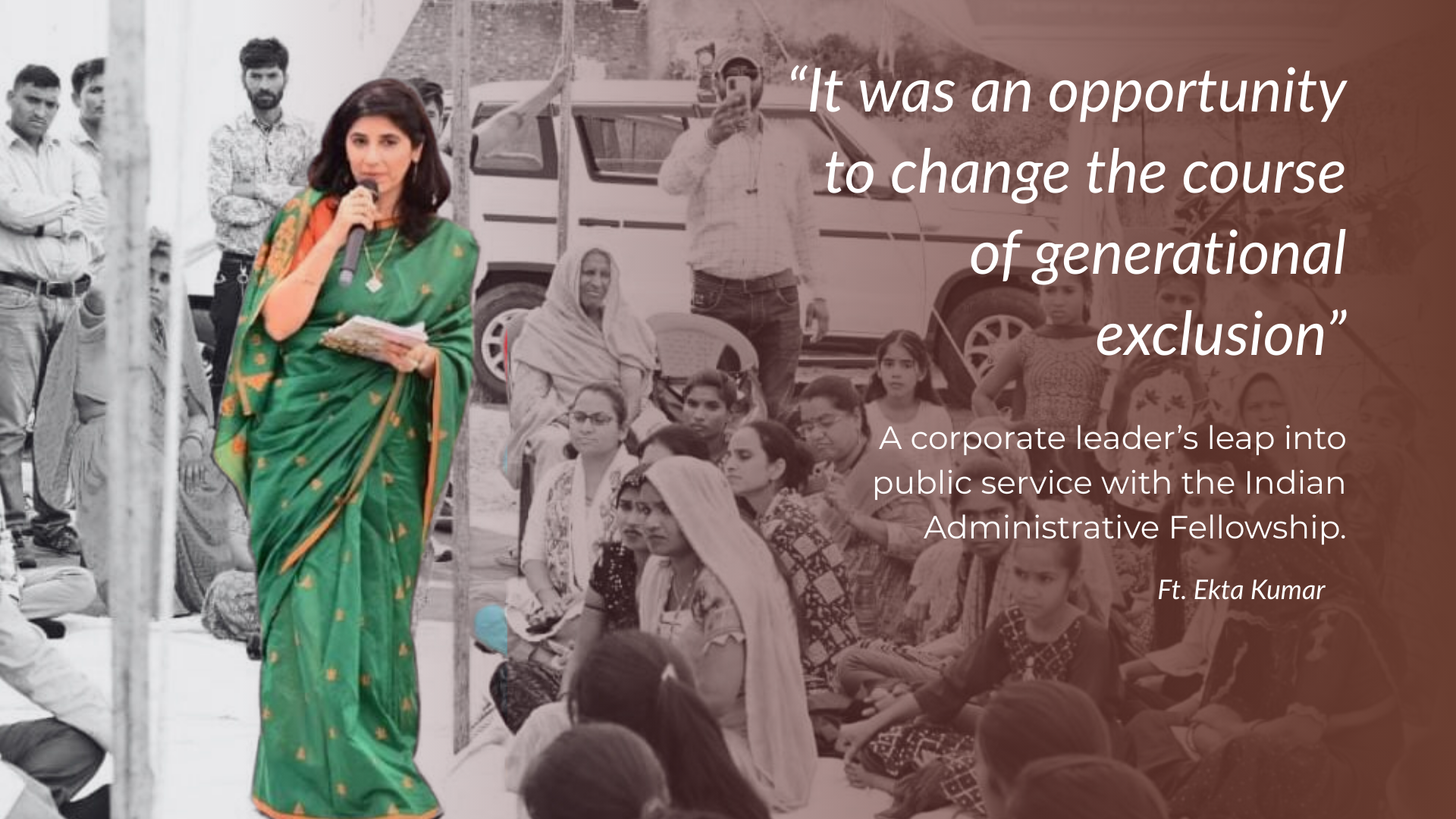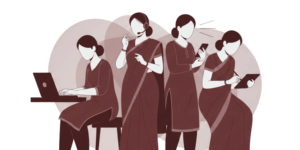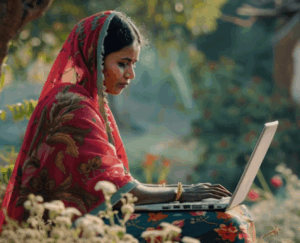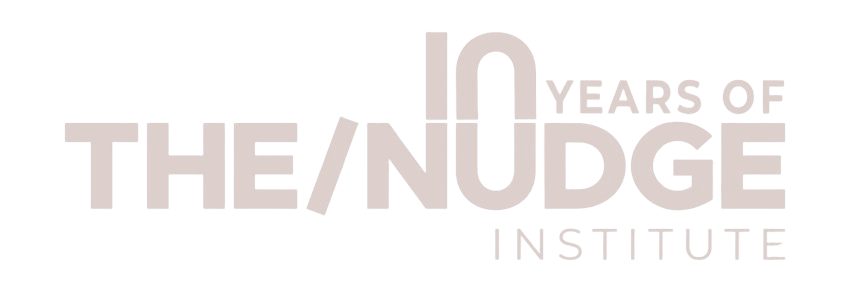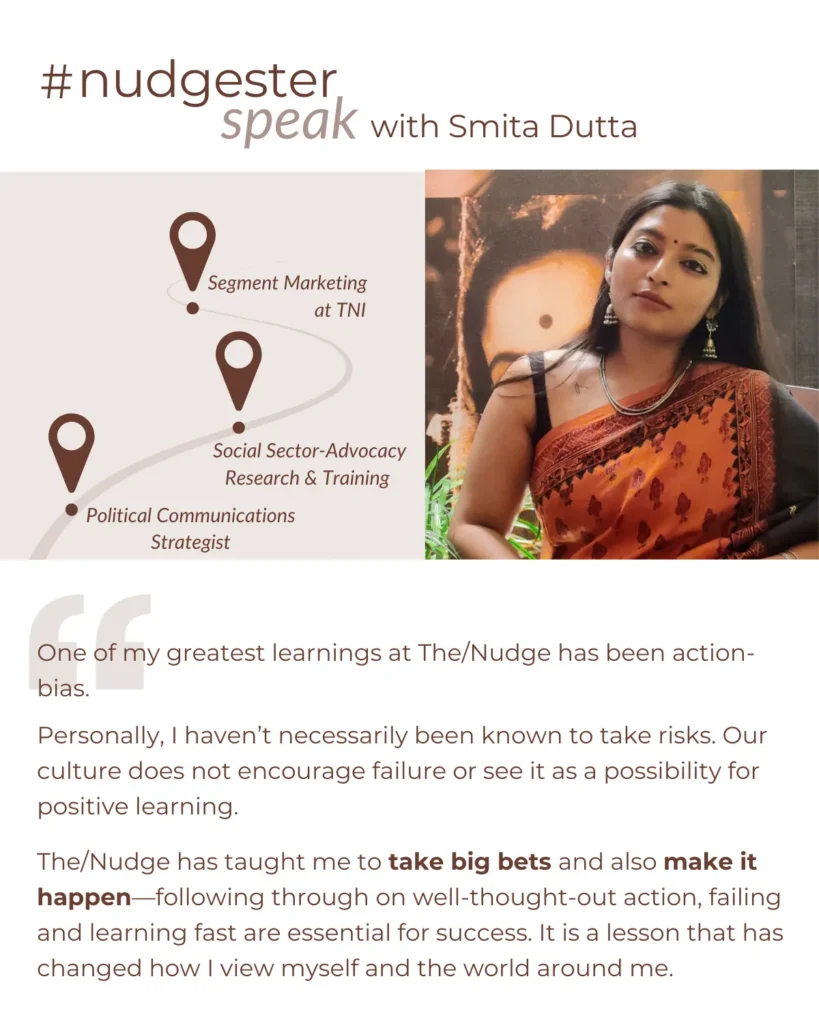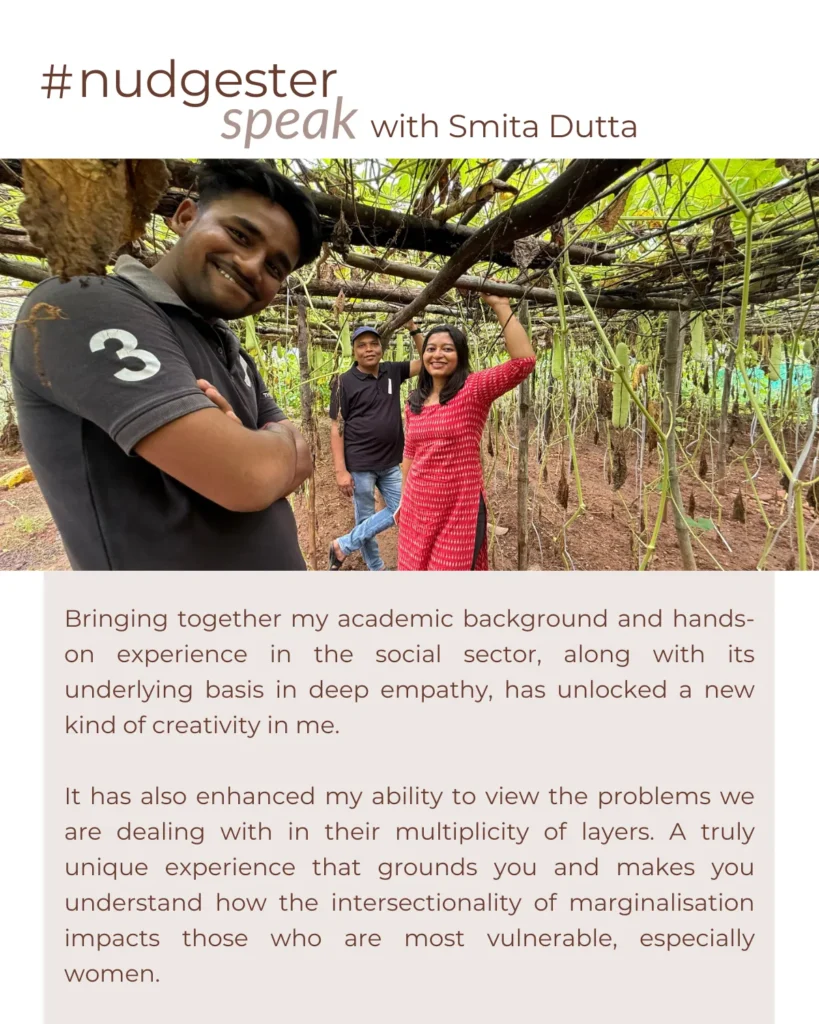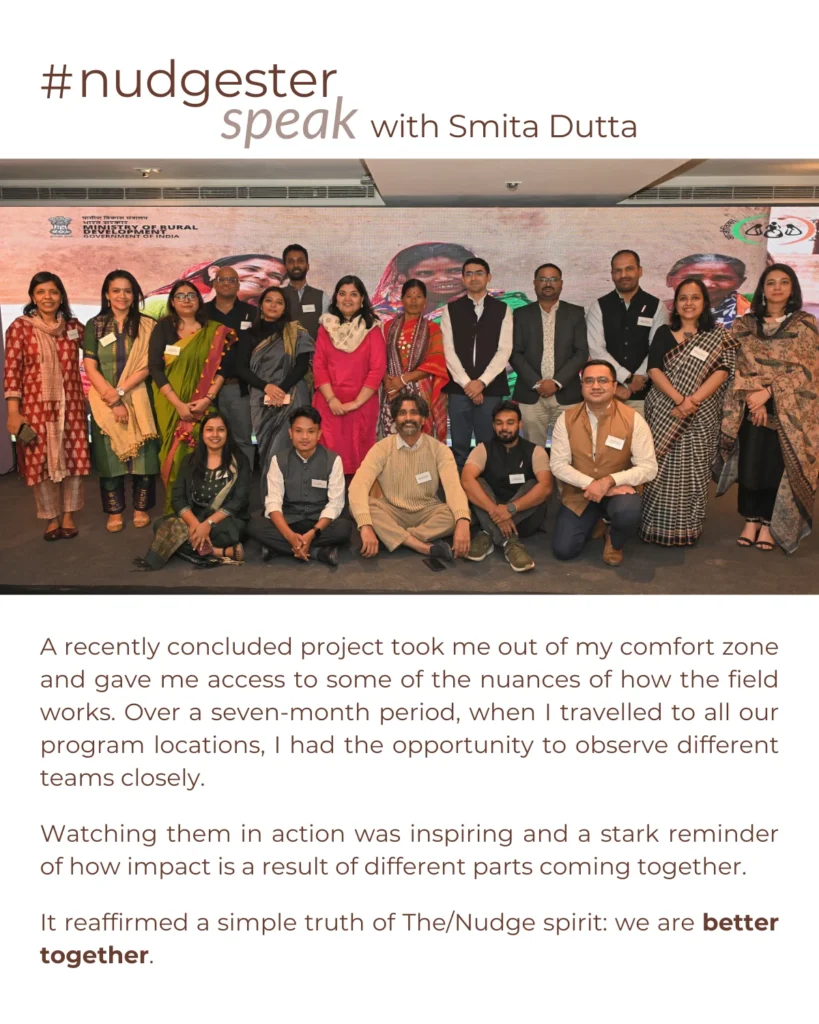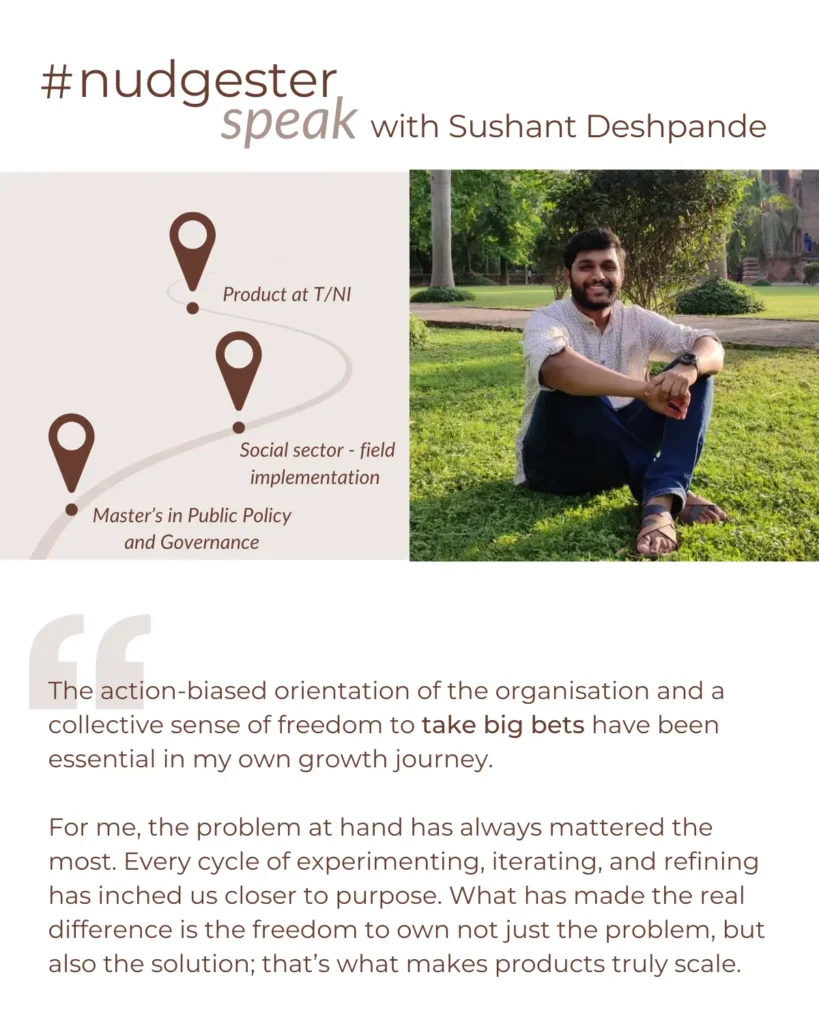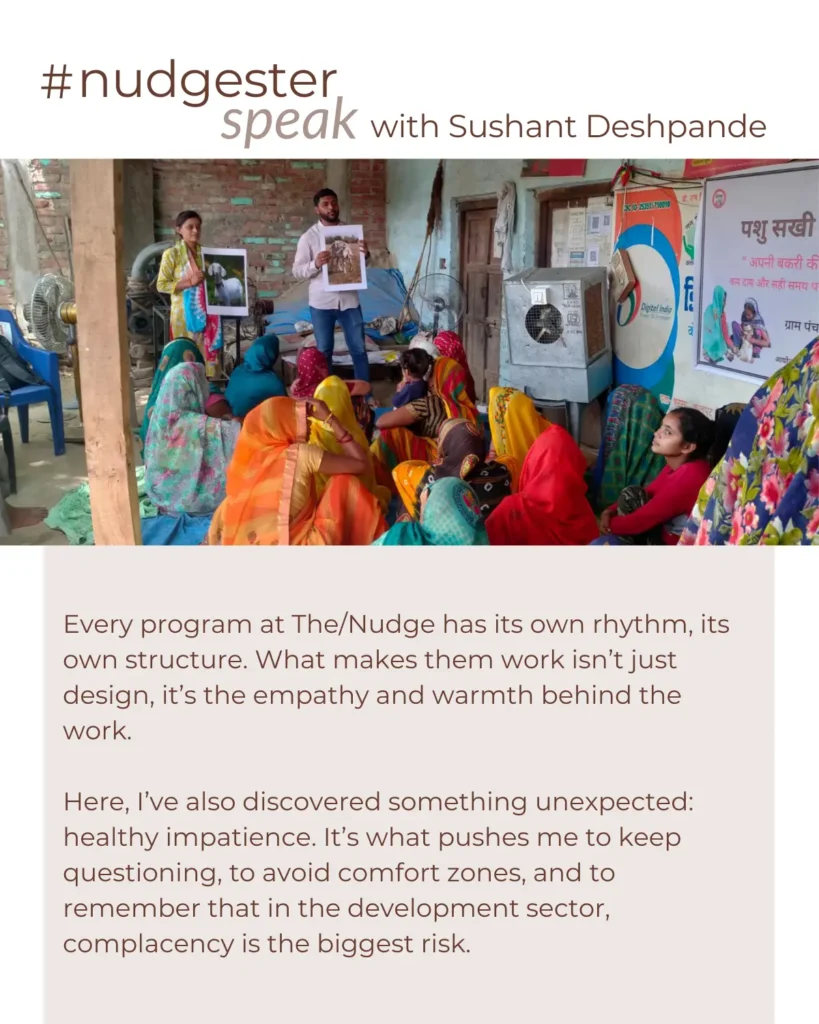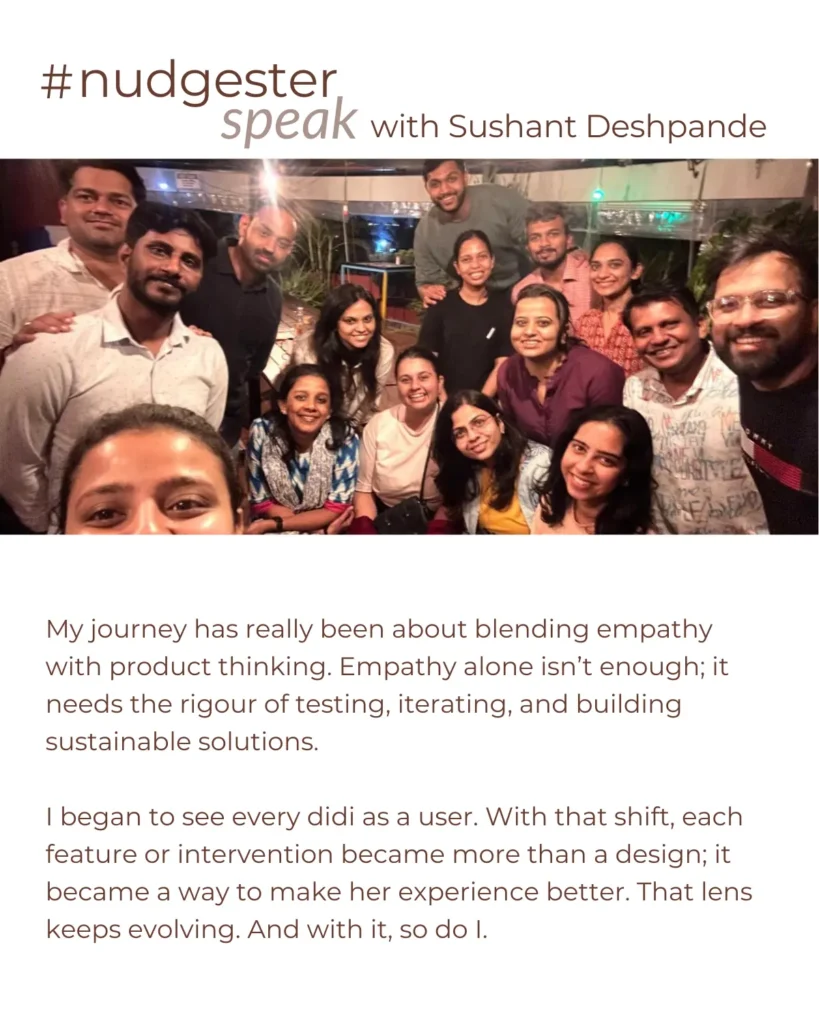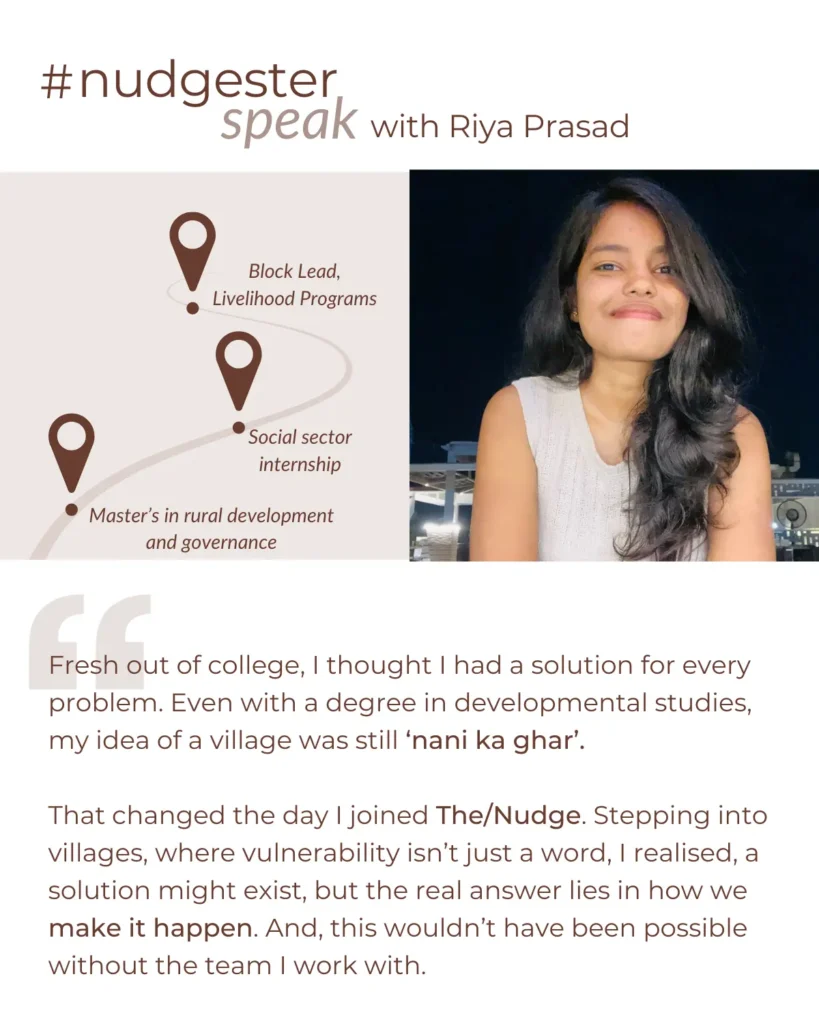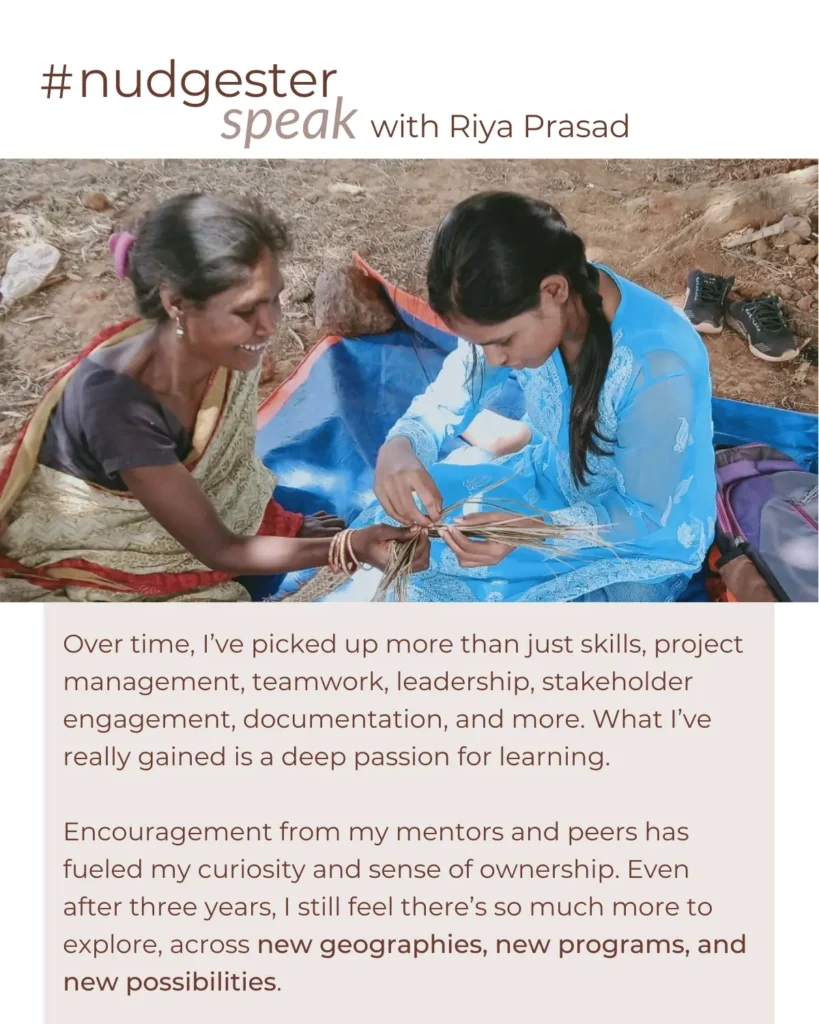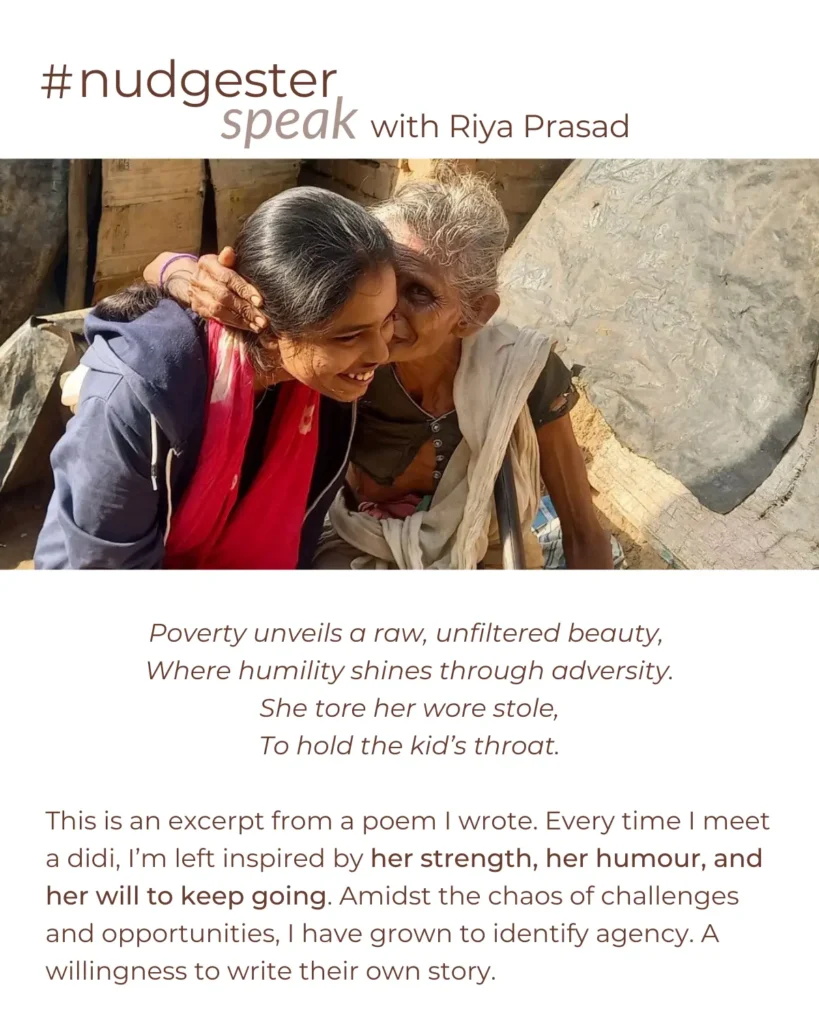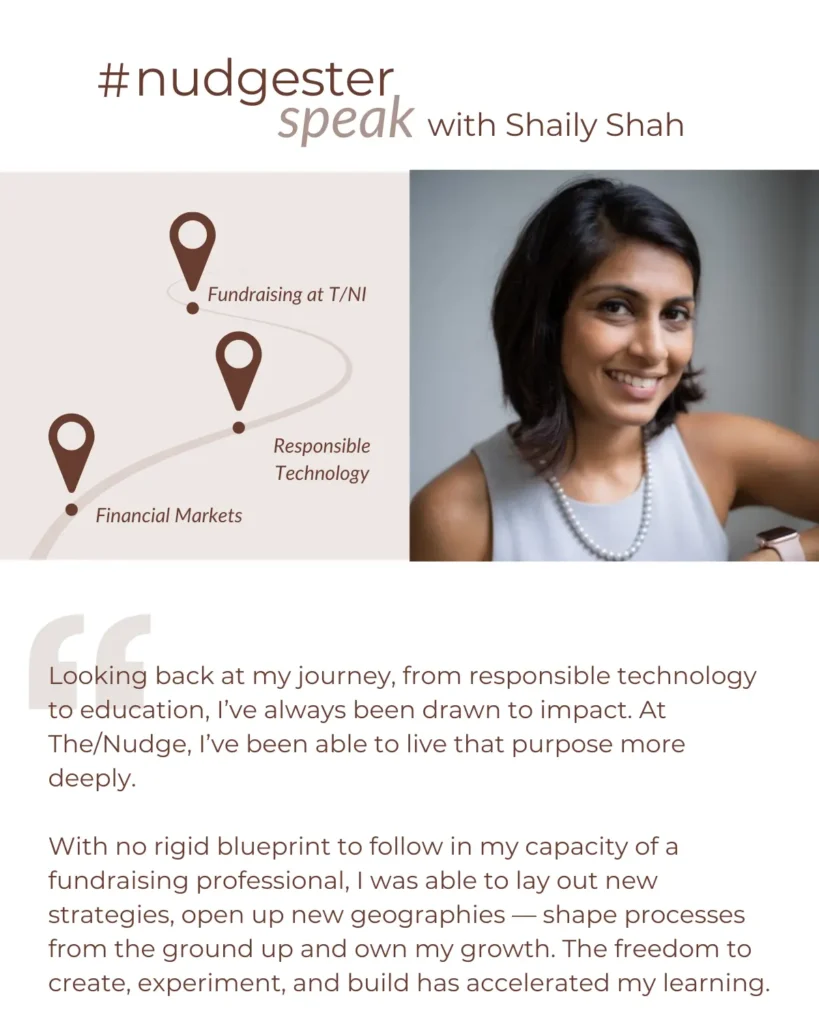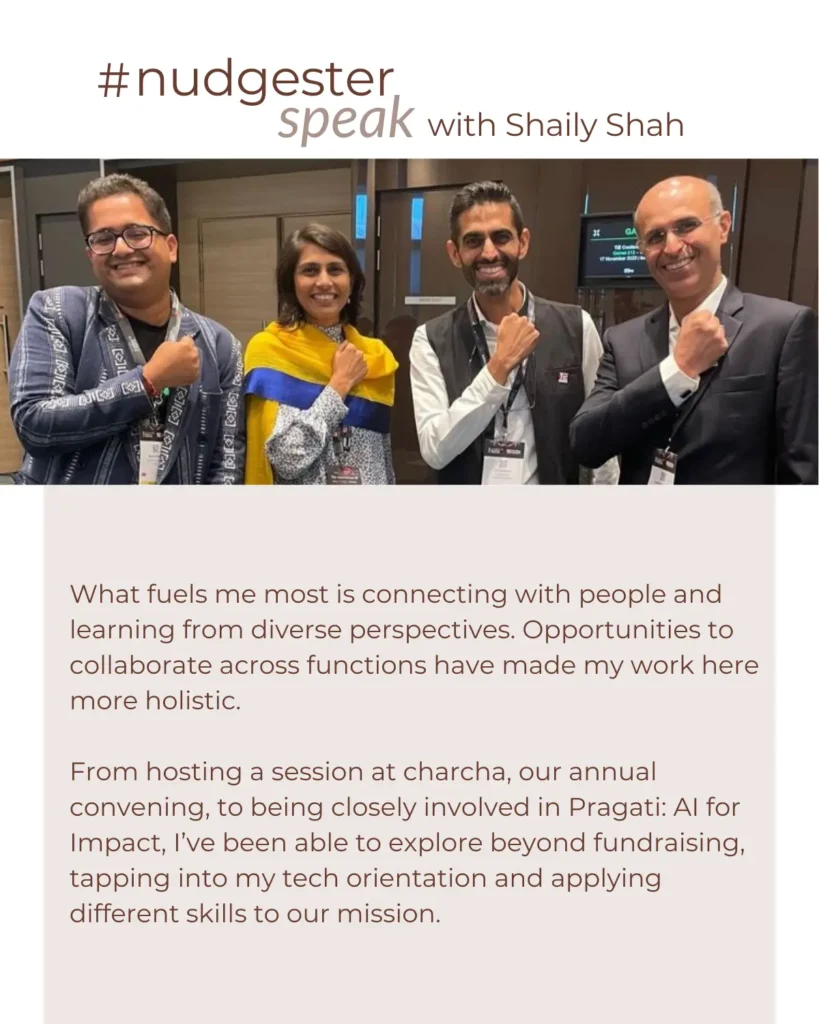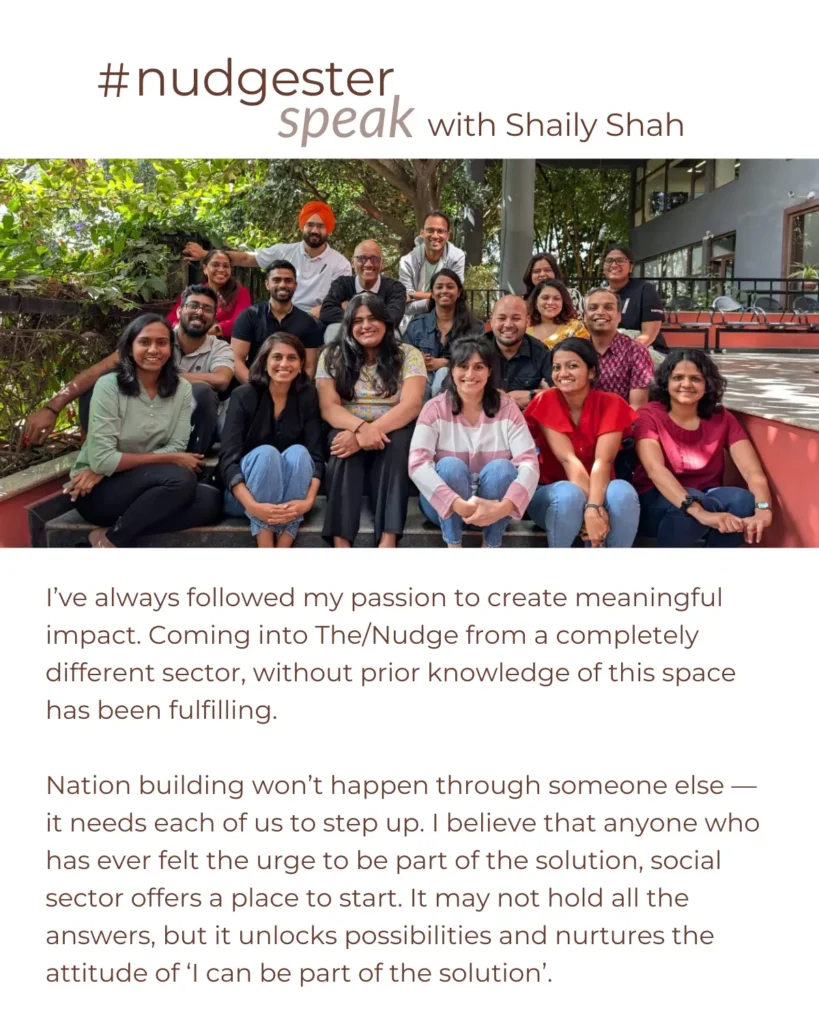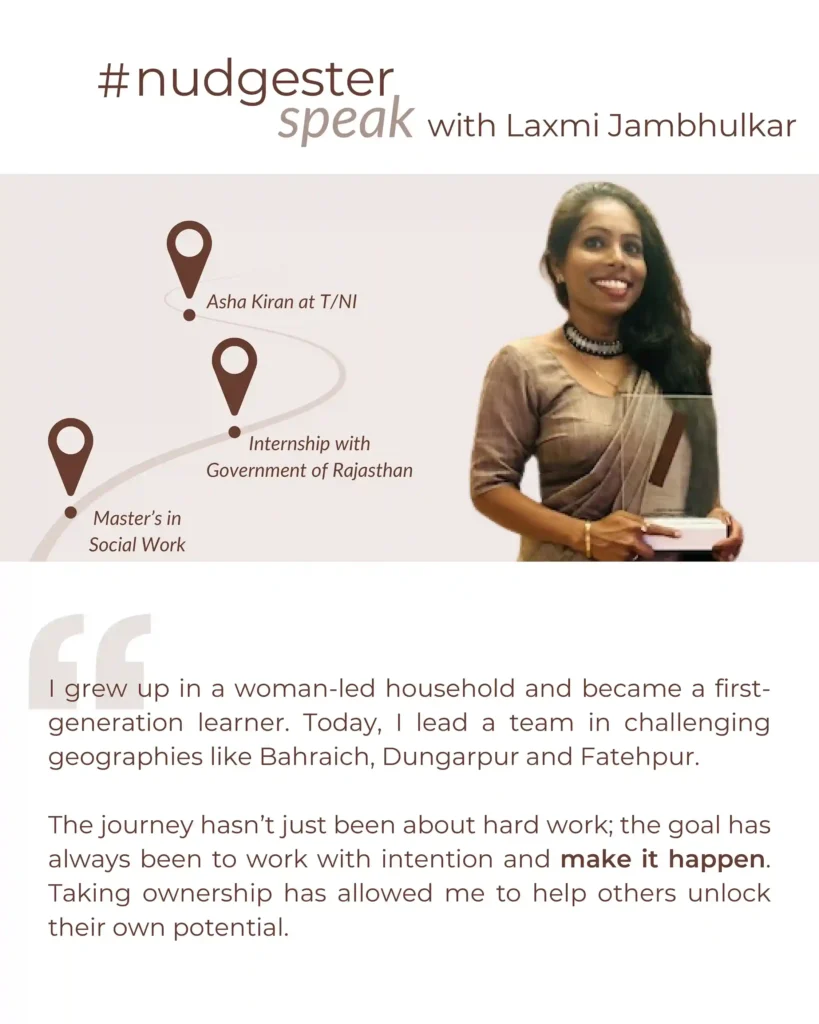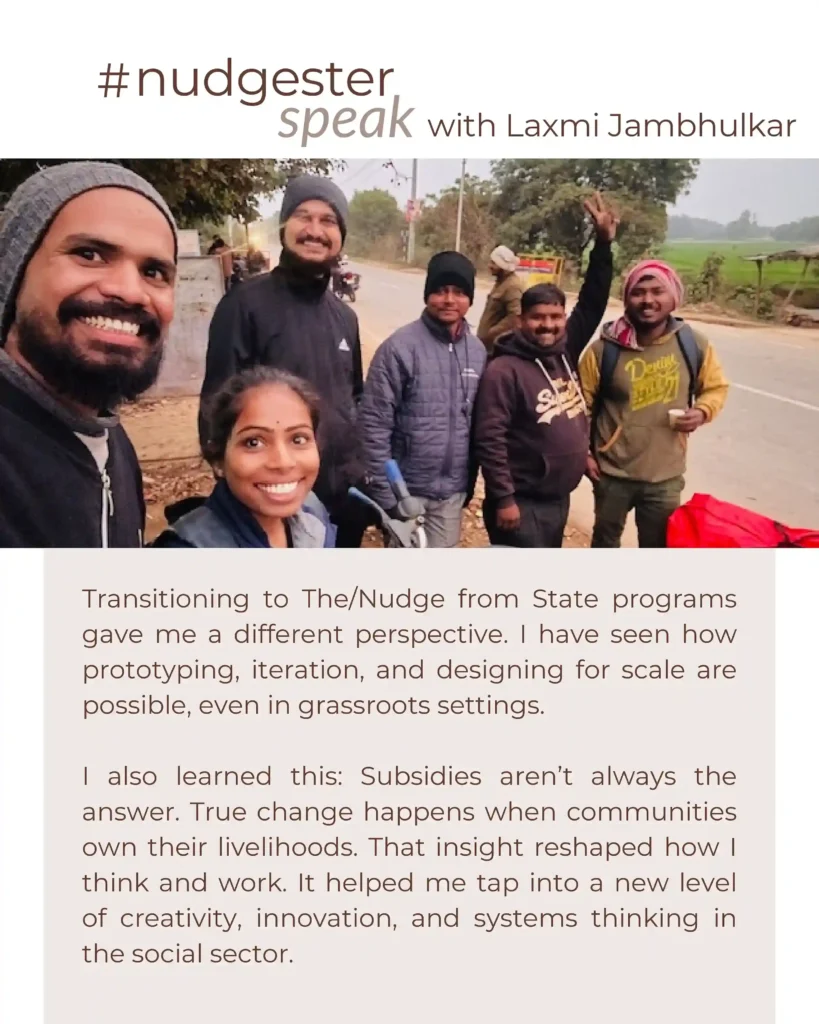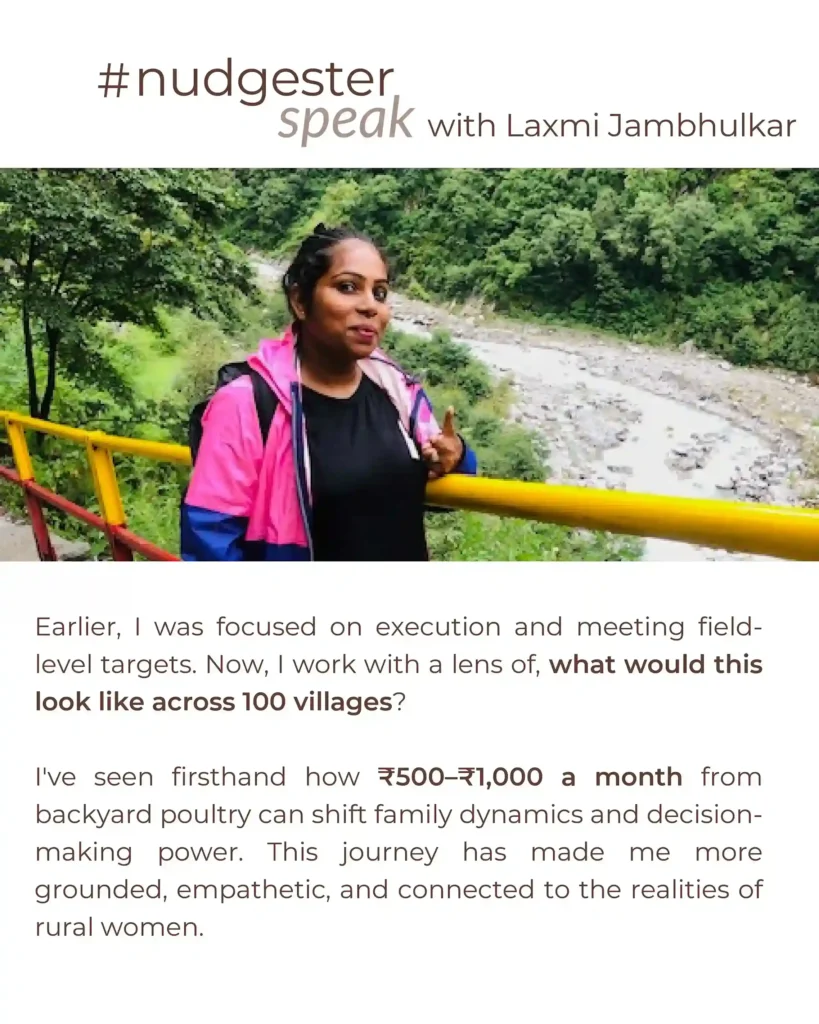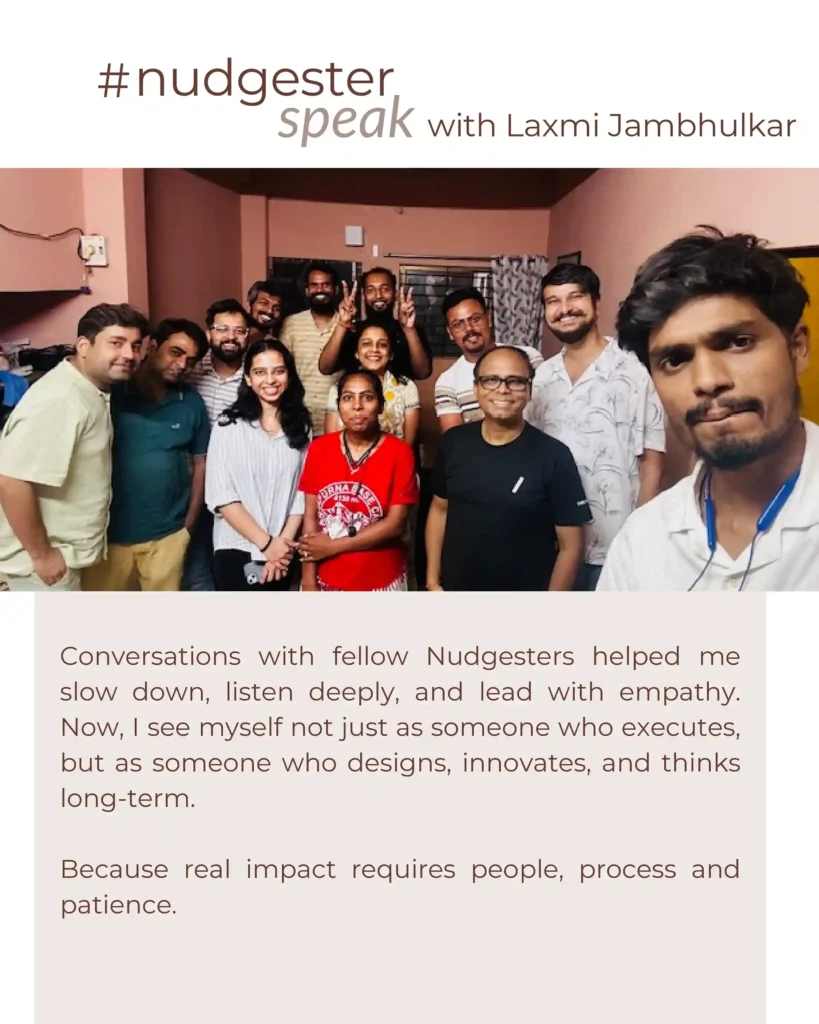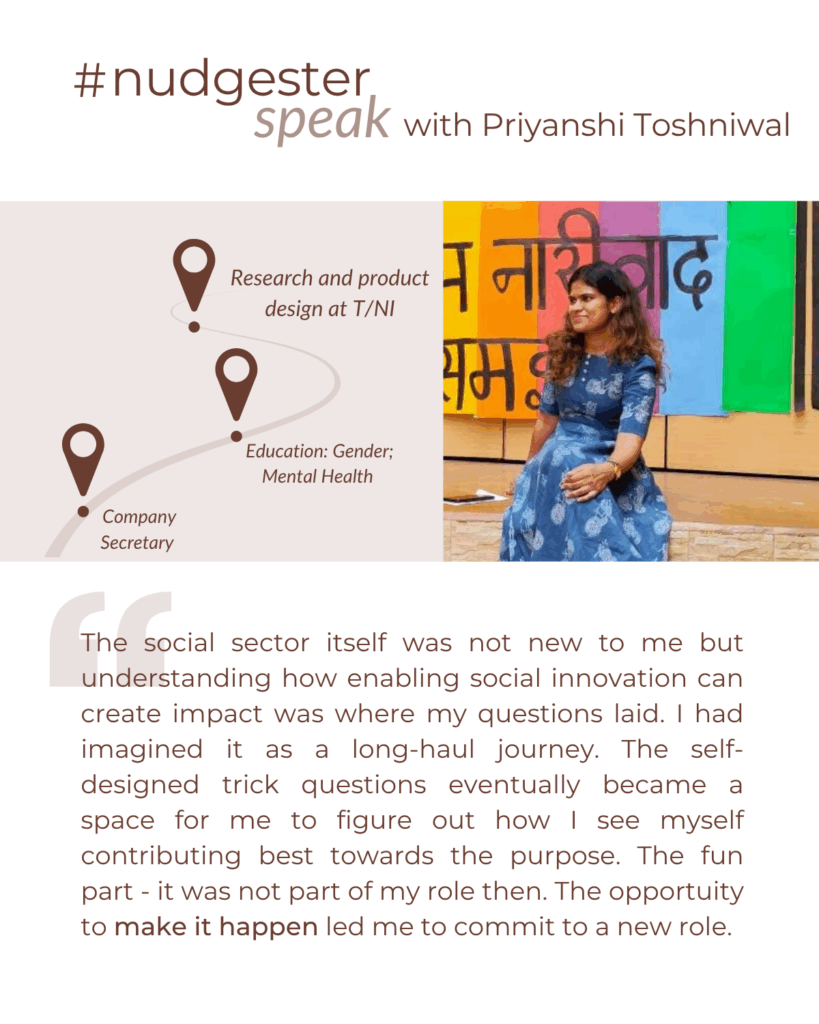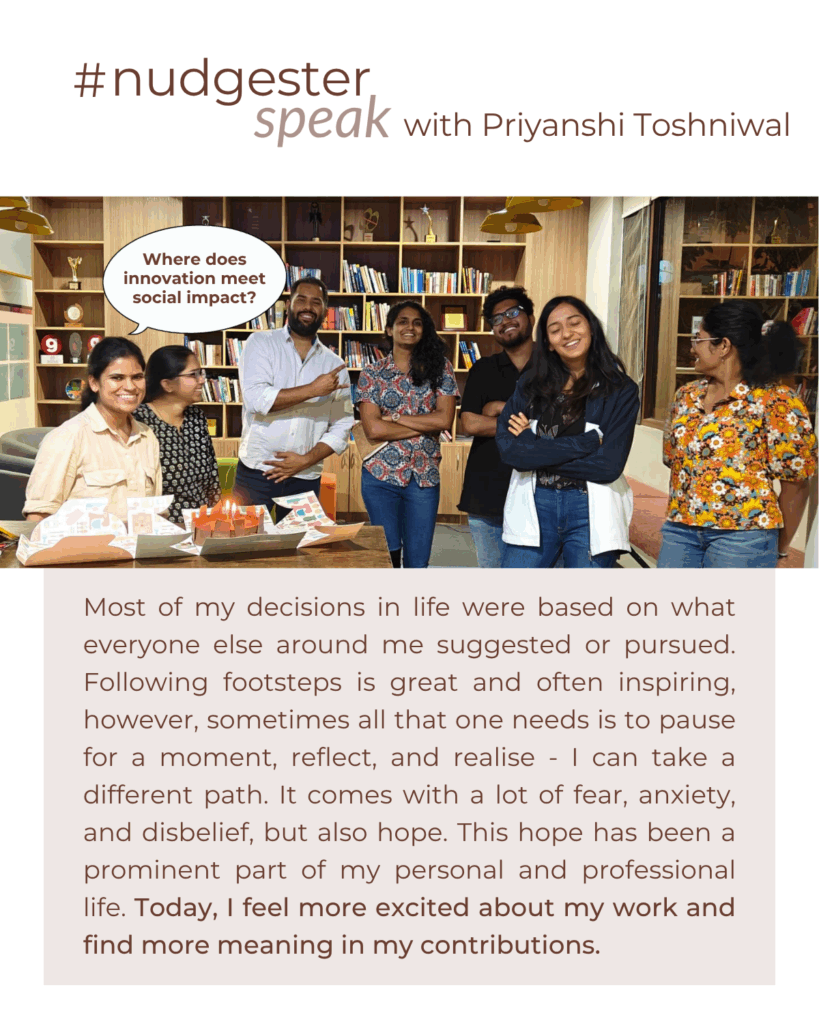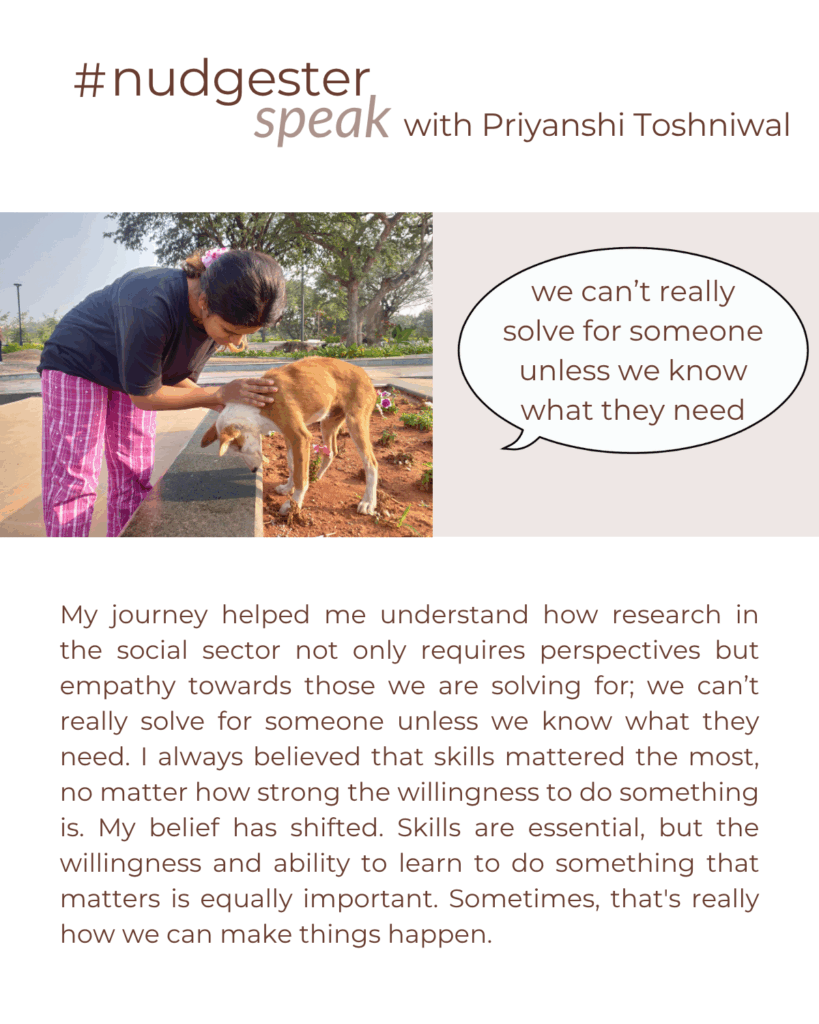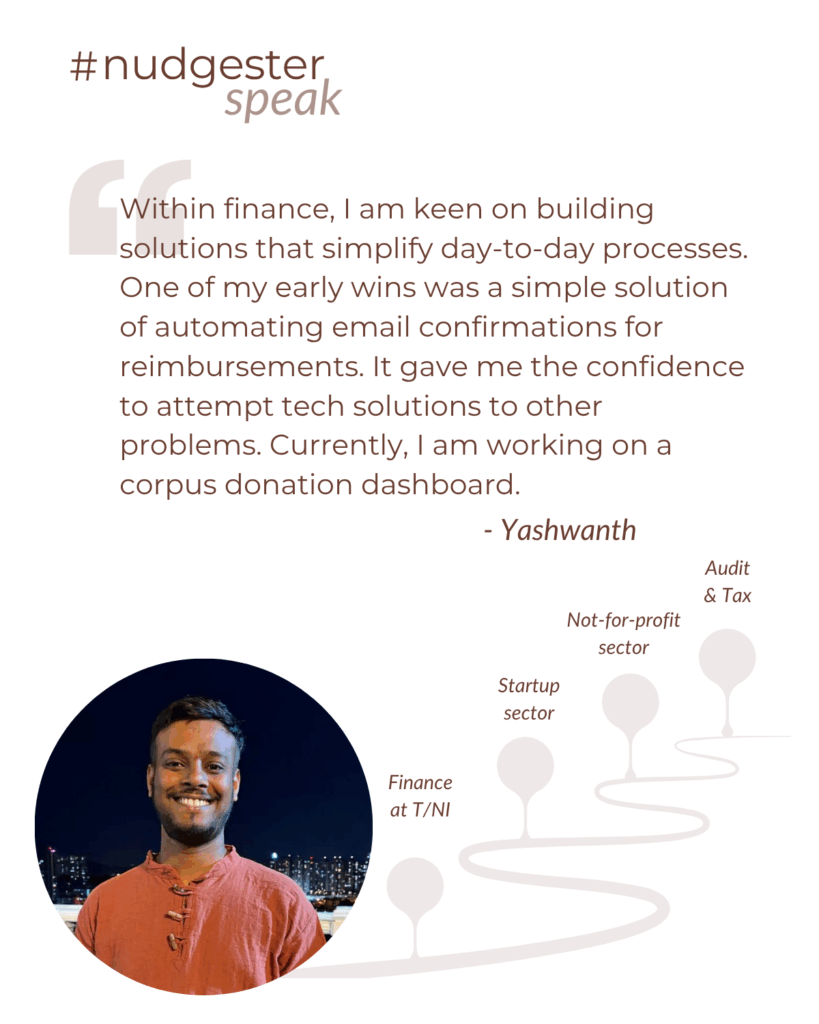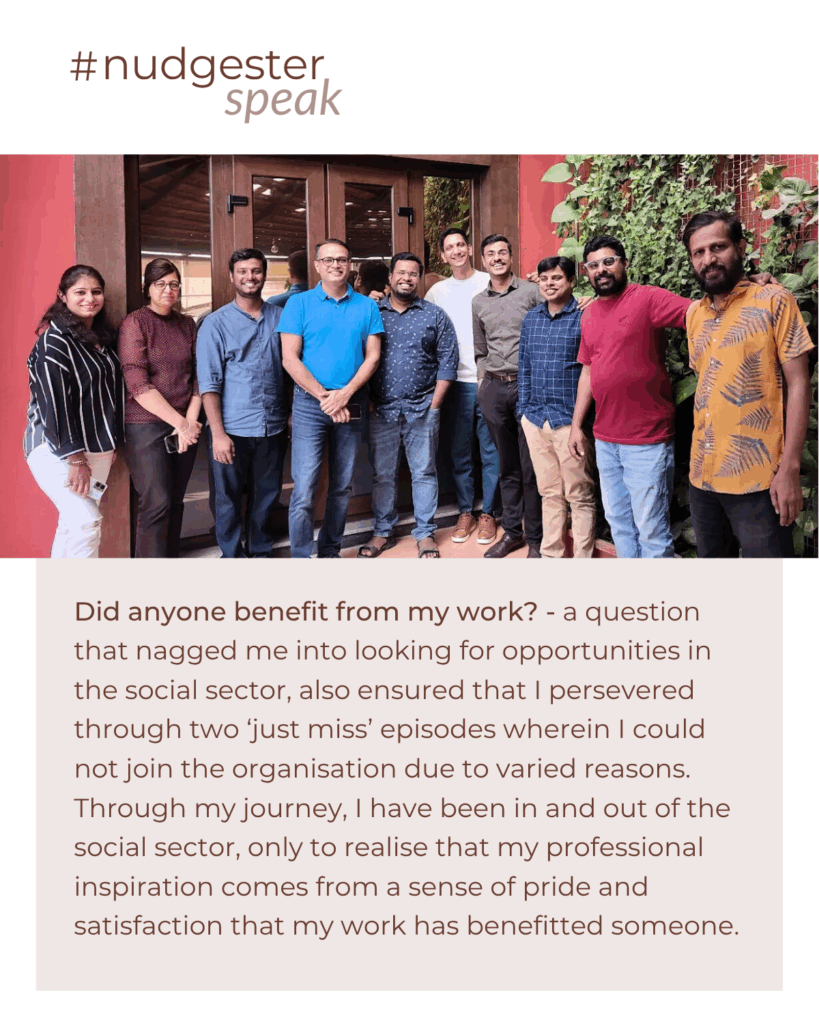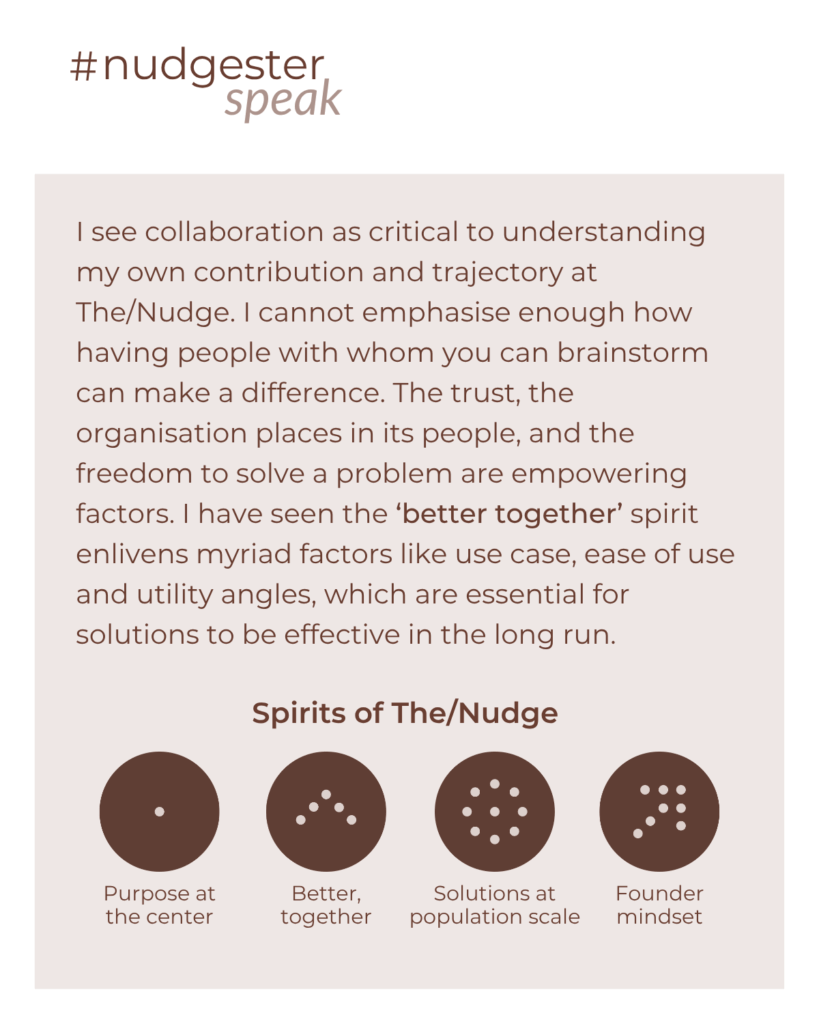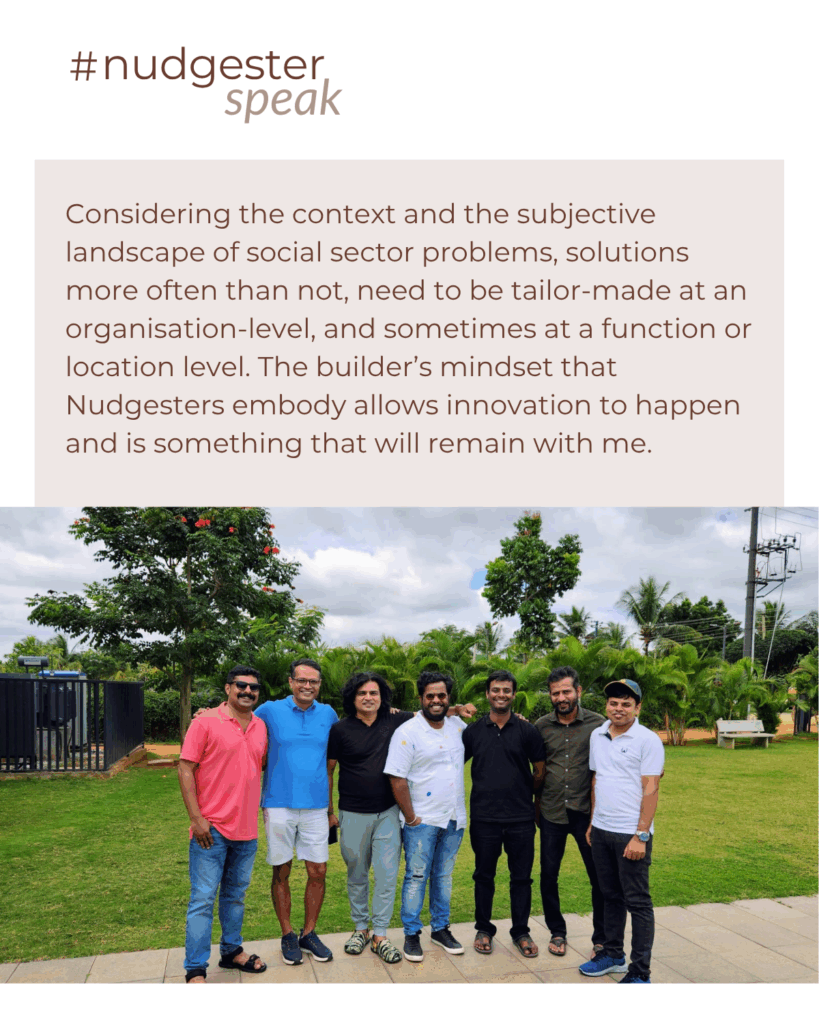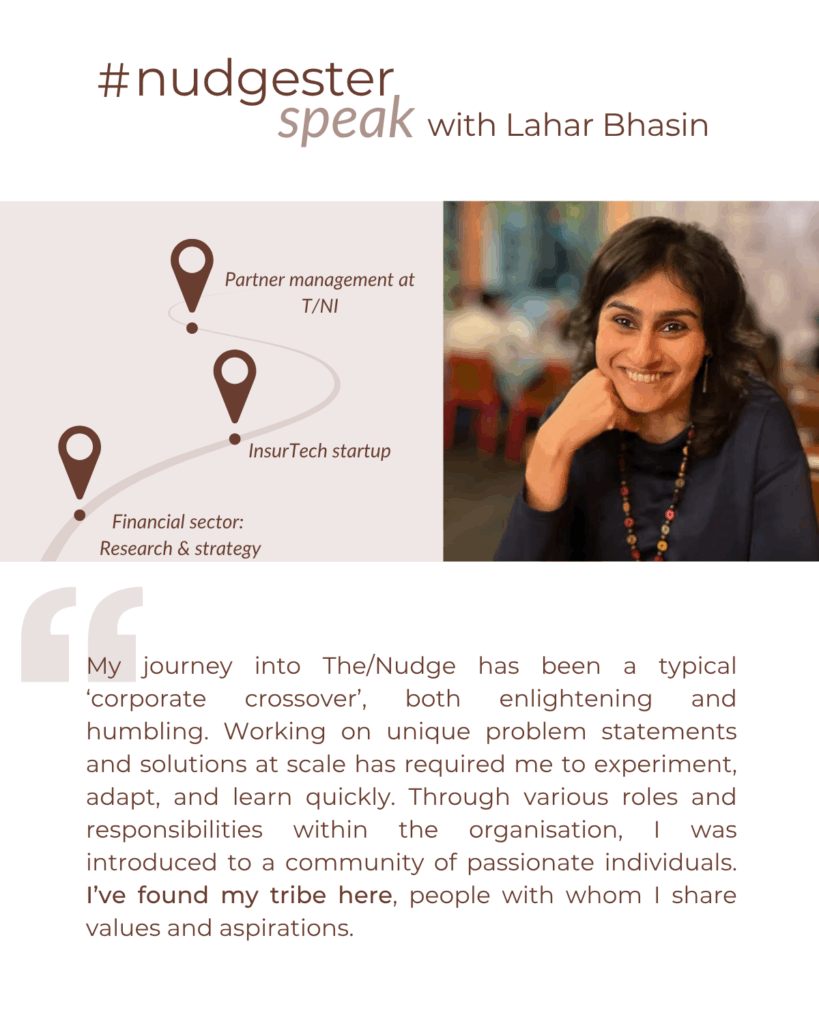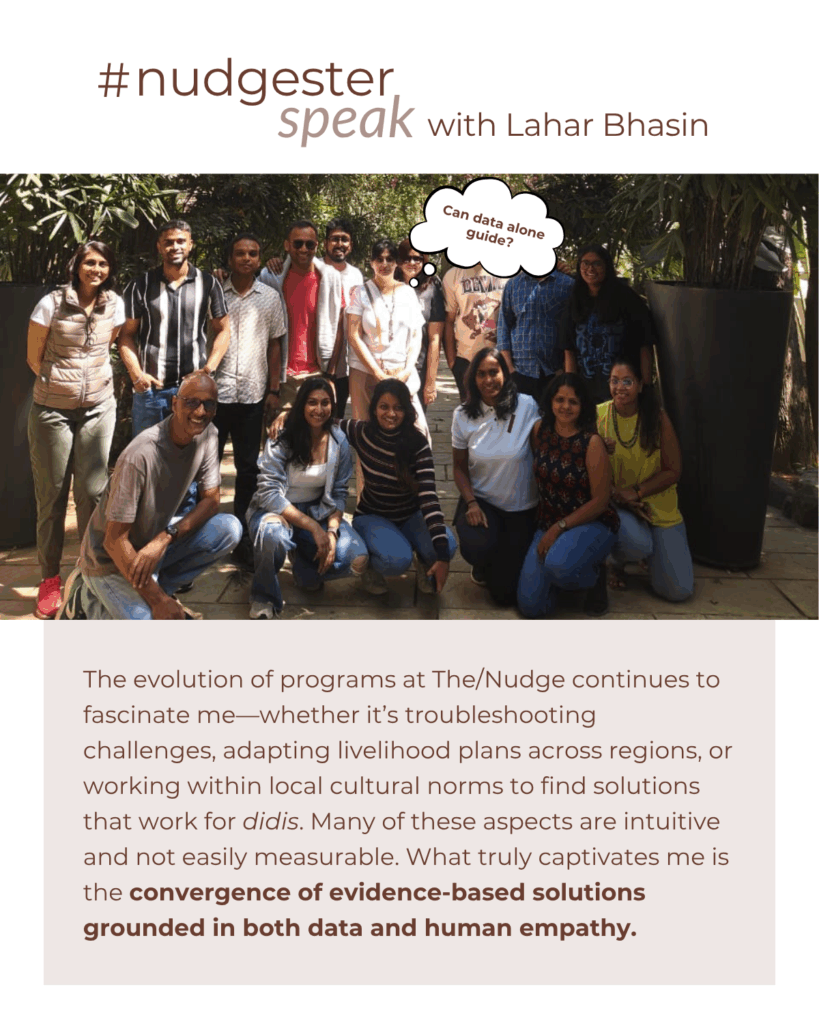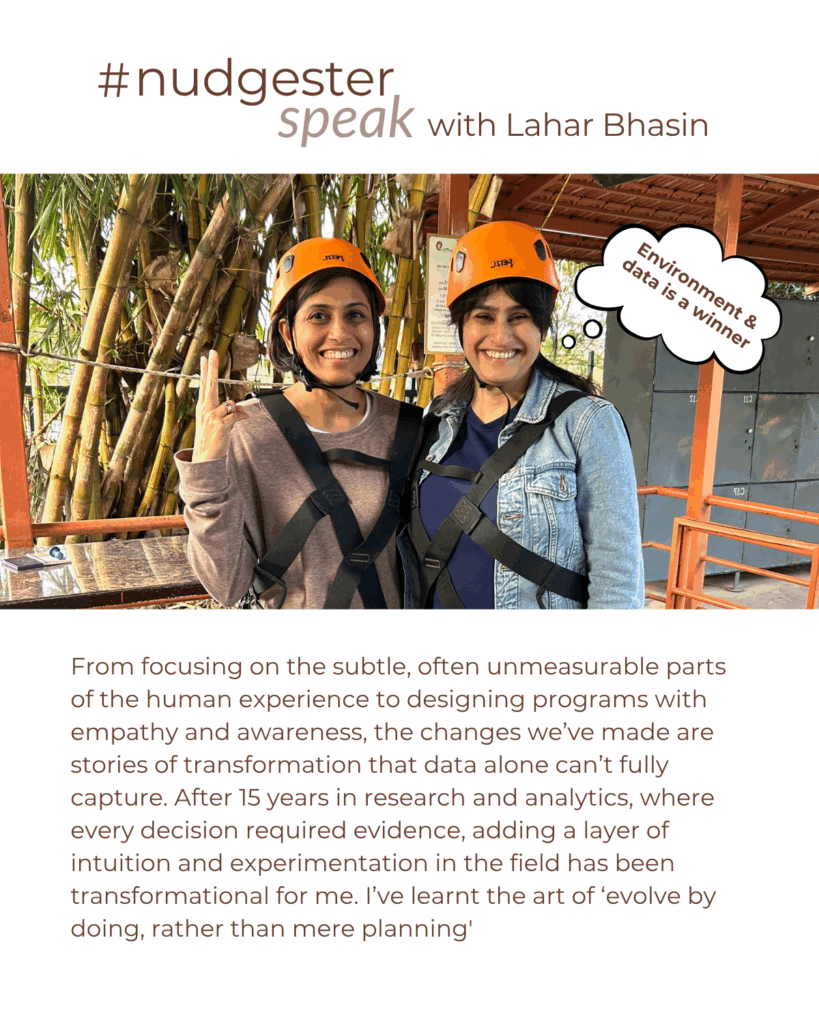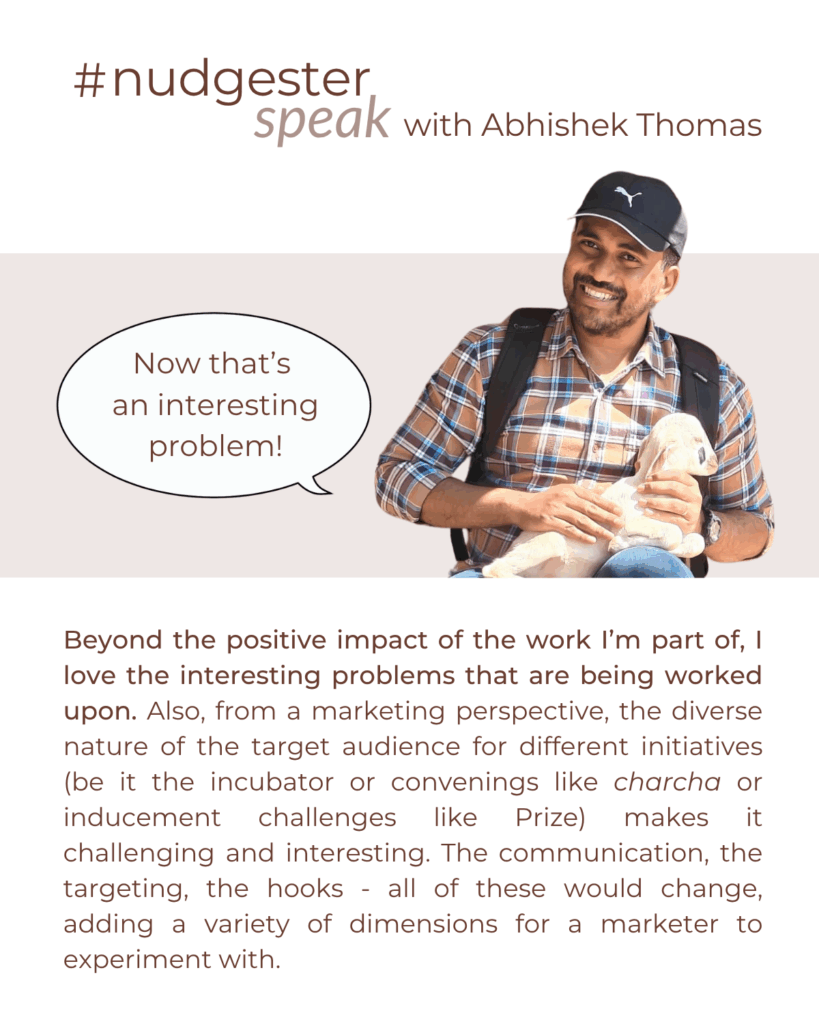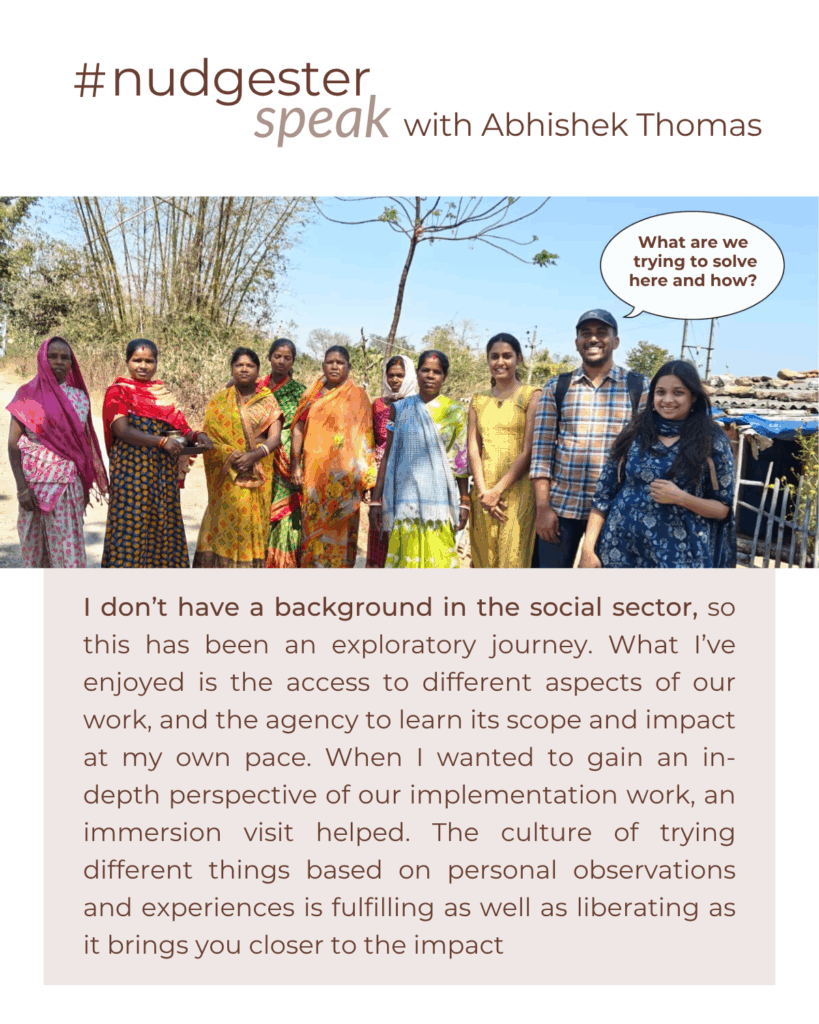Some journeys don’t follow a blueprint – they begin with a story. For me, it was a story of migration, resilience, and quiet strength, passed down through generations.
My grandparents were refugees from Pakistan, rebuilding their lives from scratch in a new India. They didn’t speak of sacrifice; they embodied it in every decision, every hardship faced without complaint. In creating opportunities for their children, they unknowingly planted the seed of resilience and purpose in me. That quiet strength became my compass, a reminder that the true meaning of sacrifice is not just enduring, but finding ways to create opportunities for others. It’s a lesson that drives my unwavering commitment to pay it forward. That sense of purpose, deeply rooted in lived experience and shaped by the quiet courage of those before me, has guided every step of my career journey.
Over the past two and a half decades, I’ve navigated the worlds of corporate transformation and sustainability- through ICICI, Airtel, Deloitte, Shell, and Samsung. I learned how businesses can create lasting value when aligned with ESG (Environmental, social, and governance) principles and social responsibility.
I had this deep desire to leverage my sustainable development skills in nation building and create impact at scale which was beyond what corporate budgets and mandates can achieve. That’s when I knew I needed to get closer to the corridors of government, to move from strategy to public policy systems, from boardrooms to the frontlines of public service.
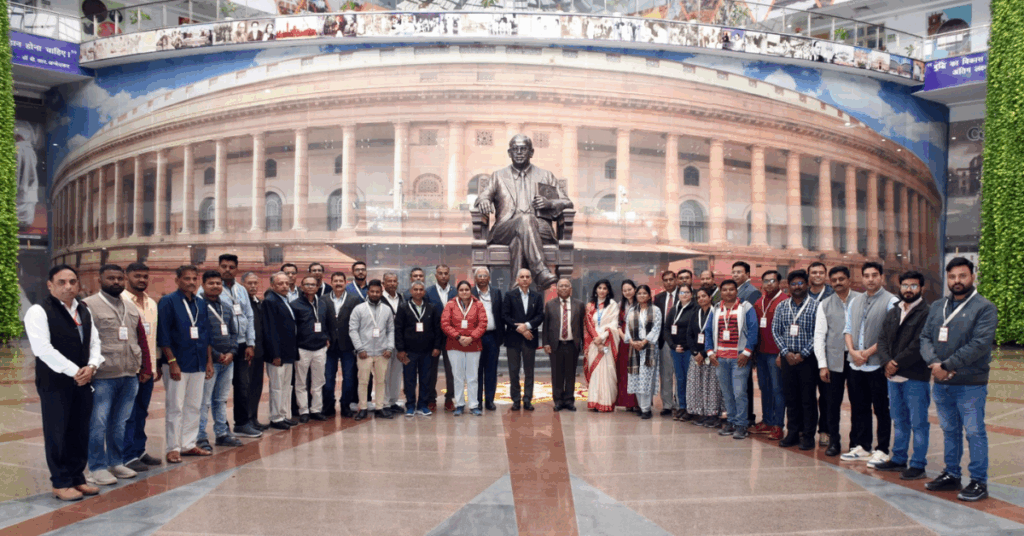
The Indian Administrative Fellowship (IAF) offered that bridge. A unique platform to embed within the government, collaborate shoulder-to-shoulder with bureaucrats, and co-create systemic change from within.
Through IAF, I joined the Ministry of Social Justice & Empowerment (MoSJE), where I found myself working on SEED (Scheme for Economic Empowerment of De-notified, Nomadic, and Semi-Nomadic Communities), a scheme whose purpose resonated deeply with my personal and professional convictions. It was more than a policy; it was an opportunity to change the course of generational exclusion. To take everything I had learned in the private sector and apply it in service of communities that had long been unseen.
SEED for Economic Empowerment
The SEED wasn’t just another assignment. It was a commitment. These are over 1,200 DNT communities—Banjara, Nat, Gadiya Lohar, Madari, Sansi, Saphera to name a few—whose names are often unknown, whose needs are often unmet. And yet, they carry centuries of culture, identity, and resilience.
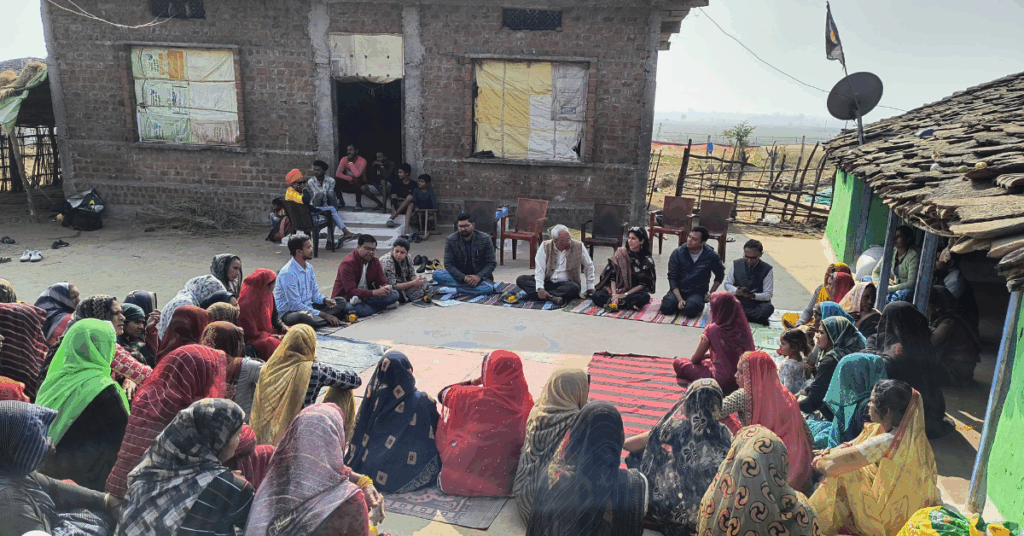
To me, SEED was a chance to bring change, not from a desk, but by working closely with the communities themselves. It required a different approach: one grounded not in top-down solutions, but in listening, learning, and co-creating.
What we built, together
The starting point wasn’t a blueprint; it was dialogue. Before any interventions could begin, we had to build trust among partners, within the system, and most importantly, with the communities.
Only then could we begin to reimagine what meaningful support could look like.
- During my time with the IAF, I helped drive some key changes in the SEED policy — including a 3.5x expansion of its budget for FY 2025–26, enabling deeper and broader impact. These changes were shaped by insights gathered directly from DNT communities, ensuring the policy became more inclusive and responsive.
- Together, we worked to bridge access to healthcare and education, often starting from zero and co-developed flexible, mobility-sensitive livelihood programs that reflected community realities.
- We onboarded 17 implementation partners across 8 states, each with contextual knowledge and grassroots experience.
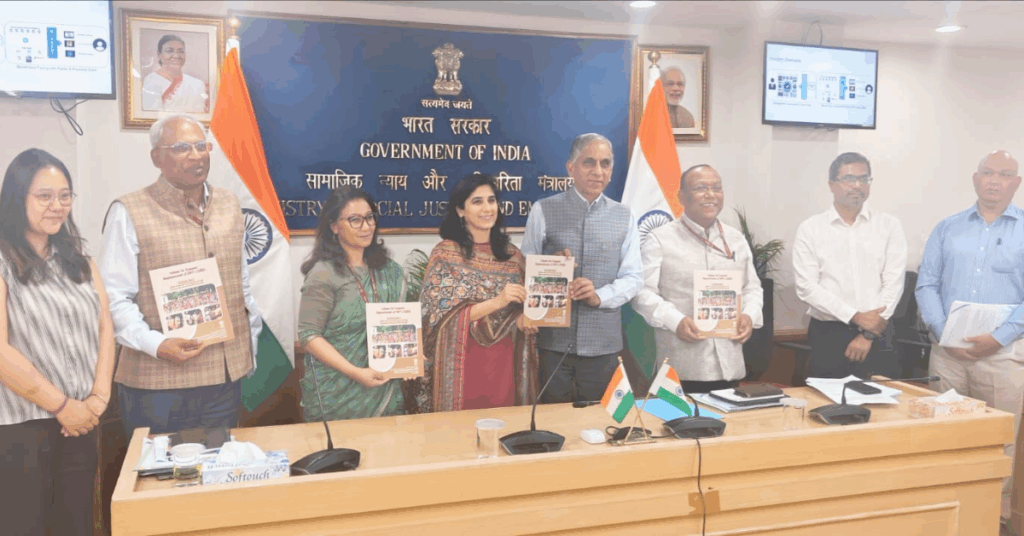
Transforming lives: The SEED impact
Education
A year ago, higher education was still a distant dream for many young minds. Today, thanks to SEED, that dream is taking flight. Over 551 students received free coaching for some of India’s toughest exams, UPSC, NEET, JEE, RRB, and more. Behind each number is a story of perseverance, hope, and opportunity finally within reach.
By raising stipends and expanding income eligibility SEED opened its doors to thousands more families, who once thought such opportunities were not meant for them.
Students like Raj embody this transformation. After years of struggle, Raj was finally able to join a coaching institute. His mother, her voice full of emotion, shared, “I had always dreamed of this for him, but I didn’t know how to make it happen. SEED made that dream a reality.”
The journey doesn’t stop here. In FY 2025–26, a nearly eightfold increase in the coaching budget will bring 4,000 more students into the fold, giving them the tools they need to dream bigger, compete harder, and succeed.
Health
In remote villages where access to basic healthcare once felt impossible, a quiet revolution is underway. Through health camps specially designed for Denotified and Nomadic Tribes (DNTs), SEED is bringing care to where it’s needed most.
At these camps, over 38,000 Ayushman Bharat cards are already being processed, offering families a pathway to affordable, dignified healthcare. For many, it’s the first time they can walk into a clinic without fear of financial ruin.
Kamla, a woman from a far-flung village, summed up the transformation in a few powerful words: “Now I don’t have to choose between food and medicine.” Her story mirrors that of thousands, as barriers to healthcare fall away and a new sense of security takes root.
Looking ahead, SEED aims to help issue another 4 lakh Ayushman Cards in FY 2025–26, extending the gift of health to even more DNT families.
Livelihood
When Sumathi sat behind her sewing machine for the first time, she wasn’t just starting a business, she was starting over. For years, she had dreamed of supporting her family, but without savings or support, it felt impossible.
Joining a Self-Help Group (SHG) through SEED changed that. With training, solidarity, and a revolving fund, Sumathi launched a small tailoring business that now puts food on the table and hope in her hands.
“For the first time, I feel like I have the power to change my life,” she says, smiling as she threads the needle.
Sumathi’s story is echoed across villages and towns where over 3,000 SHGs were formed in FY 2024–25 touching the lives of ~40,000 rural women. These groups are not just collectives, they are communities of ambition and mutual strength, where women are learning to trust in their abilities and dreams once again.
Recognising their potential, SEED has increased the revolving fund amount, giving SHG members the financial boost they need to start enterprises, invest in livelihoods, and stand on their own terms.
In FY 2025–26, SEED will form another 2,000 SHGs, building a future where many more women like Sumathi are not just participants in the economy but leaders of change in their communities.
These initiatives were backed by significant investments in technology, collaborations with over 20 partners, and close coordination with other central ministries and state governments. SEED is creating a robust ecosystem where DNTs can thrive.
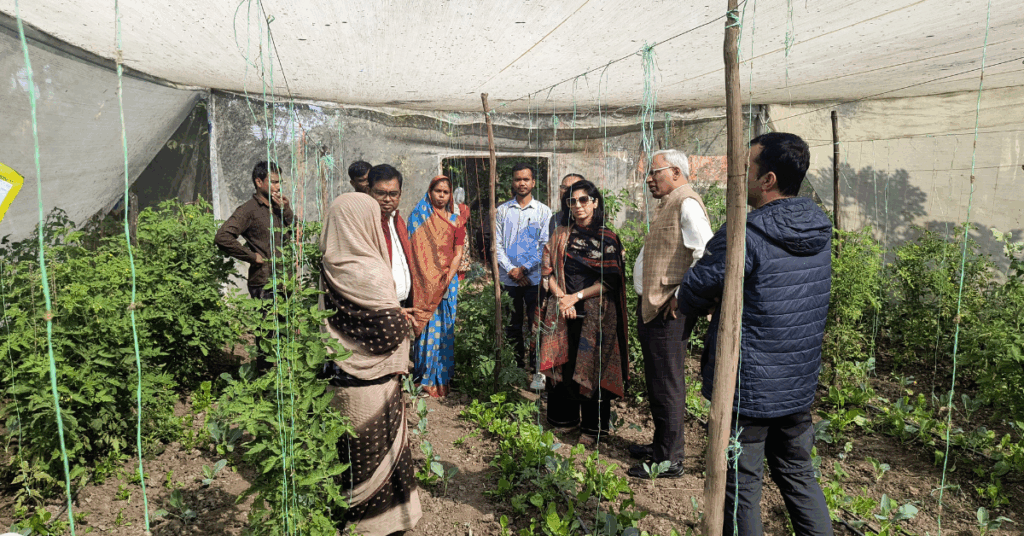
Walking with SEED, a personal reflection
Behind every number, there is a life reshaped: Raj’s hope, Kamla’s relief, Sumathi’s newfound power. What stays with me are not just the statistics, but the faces — a mother’s quiet pride as her daughter enrolls in free coaching, a community leader guiding her SHG with resilience. These aren’t just stories; they’re futures rewritten with dignity and possibility.
Precision to Perspective: My years in corporate leadership taught me how to solve problems: define the objective, mobilize resources, track metrics, and deliver results. I learned precision, accountability, and the value of moving fast with clarity and structure. But it wasn’t until I began working within the complexity of governance and social systems, through programs like SEED, that I truly understood what impact looks like on the ground.
Listening as a Lever for Change: I learned that frameworks don’t transform lives, relationships do. Policies can be built on paper, but progress is built on trust. It’s not enough to offer a scheme or a service—it’s about understanding why a mother may resist formal banking, or why her children aren’t in school despite the incentives. In these spaces, listening—truly listening—became the most powerful leadership tool I carried forward.
Facilitation over Direction: I also learned that in governance, leadership often looks like enablement. Real change emerged not when I led from the front, but when I stepped back, enabling communities to take ownership, letting partners become champions, and creating space for new voices to emerge. Facilitation, not control, became the new measure of success.
Patience is Key as Complexity is Layered: And finally, I learned that in social systems, complexity is layered and patience is key. Issues of poverty, identity, exclusion, and opportunity are rarely linear. They’re emotional, political, intergenerational, and deeply personal. Addressing them means embracing complexity, holding space for multiple truths, and learning to move forward without the demand for immediate resolution.
Together, these lessons reshaped how I approached public policy — from reforming frameworks and expanding budgets to nurturing ecosystems of trust, voice, and collective action.
Because real inclusion isn’t just policy. It’s deeply personal
Sources: SEED Policy

